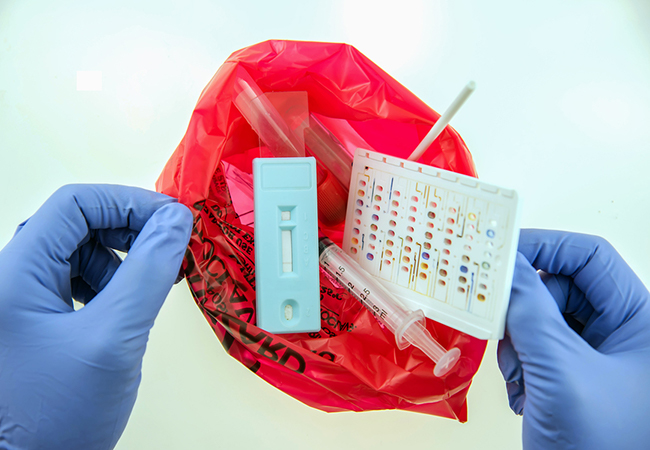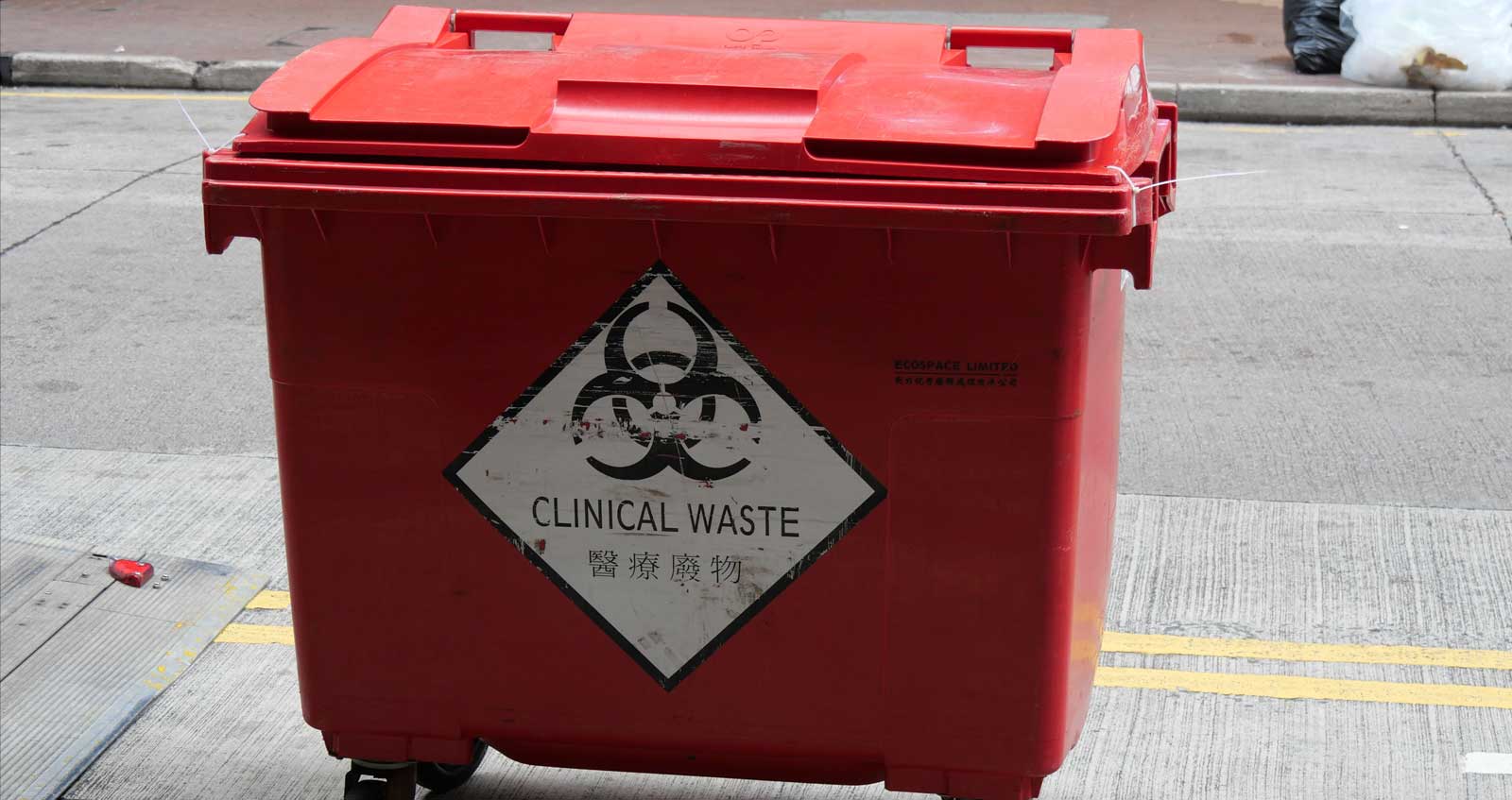Stay Ahead of Regulations: Expert Advice on Medical Waste Disposal
In a globe where the healthcare sector is continuously developing, it is vital for medical facilities to stay ahead of policies when it concerns the proper disposal of clinical waste. With strict standards and regular regulatory changes, it can be challenging to browse the complexities of this procedure. Nonetheless, with professional suggestions, facilities can ensure conformity and minimize dangers related to inappropriate waste disposal. From comprehending the different groups of medical waste to carrying out the right collection and partition approaches, this discussion will certainly provide beneficial understandings and workable pointers to assist centers remain ahead of policies in the ever-changing landscape of medical waste disposal.
Understanding Medical Waste Categories
Recognizing medical waste categories is crucial for appropriate disposal and management in medical care facilities. Medical waste describes any type of waste generated by medical care activities that might pose a hazard to public health and wellness or the environment. It is essential to classify clinical waste properly to ensure its risk-free handling, therapy, disposal, and transport.
There are several groups of clinical waste that medical care centers need to be knowledgeable about. One of the most typical categories include transmittable waste, pathological waste, sharps waste, pharmaceutical waste, and chemical waste. Each classification has certain standards and laws for its proper management and disposal.
Transmittable waste consists of materials polluted with blood or other physical liquids, such as handwear covers, dress, and research laboratory societies. Pathological waste refers to human tissues, organs, or body components that require unique handling and disposal. Sharps waste includes made use of needles, syringes, and other sharp objects that can cause injury and transfer infections. Drug waste comprises ended, unused, or contaminated drugs that require mindful handling and disposal. Chemical waste consists of solvents, anti-bacterials, and various other chemical substances used in medical care centers.
Staying Up-To-Date With Regulatory Changes
Staying present with regulative modifications is crucial for healthcare facilities to guarantee compliance and proper management of medical waste disposal. medical waste removal. With laws continuously developing, it is vital for health care facilities to stay updated to prevent penalties, penalties, and prospective damage to the environment and public health and wellness
To remain in advance of regulative adjustments, healthcare centers should establish a system for monitoring and tracking updates. This can be done by subscribing to governing e-newsletters, participating in conferences and workshops, and proactively taking part in industry organizations. Furthermore, centers should designate a staff participant or team in charge of remaining notified and disseminating info to appropriate stakeholders.
Routine interaction with regulatory agencies is additionally crucial. Medical care centers must develop partnerships with local, state, and federal agencies to guarantee they recognize any type of changes in policies that might affect their waste administration practices. This can be done via normal meetings, involvement in public remark periods, and aggressive interaction with regulative agencies.
Moreover, health care centers ought to take into consideration partnering with waste monitoring firms that focus on medical garbage disposal (medical waste disposal services with WasteX). These companies are frequently fluent in the newest laws and can offer guidance and support to guarantee compliance
Executing Correct Collection and Partition Methods
To successfully handle clinical garbage disposal, healthcare centers must develop correct collection and segregation techniques based on regulative guidelines. Applying these methods guarantees the secure handling and disposal of possibly harmful products, protects the setting, and decreases the risk of infections and injuries to medical care employees and the public.
Proper collection and partition methods involve making use of marked containers and identifying systems. Medical care facilities ought to give clearly labeled containers for different types of medical waste, such as sharps, contagious waste, pharmaceutical waste, and non-hazardous waste. These containers should be color-coded and clearly marked to avoid complication and advertise simple identification.
Additionally, medical care facilities ought to train their personnel on the right procedures for gathering and setting apart clinical waste. This includes medical waste disposal services with WasteX educating them on the different sorts of waste, the proper containers to use, and the relevance of adhering to guidelines and laws. Normal training sessions and refresher course programs should be conducted to make sure that personnel continue to be up-to-date on finest techniques.
Moreover, health care centers ought to establish a system for normal collection and disposal of medical waste. This may include partnering with licensed waste administration business that focus on medical garbage disposal. These business will guarantee that the gathered waste is transported and dealt with in compliance that site with regulatory requirements.
Selecting the Right Disposal Methods

Incineration is just one of one of the most usual and reliable techniques for taking care of specific types of clinical waste, such as pathological waste and sharps. It involves the regulated combustion of waste at high temperatures, lowering it to ash. Incineration can launch hazardous contaminants right into the air and add to air pollution.

Chemical treatment involves the usage of chemicals to disinfect and reduce the effects of the waste. Microwave therapy utilizes microwave energy to heat and sanitize the waste.
Ensuring Compliance Through Documentation and Training
After meticulously considering the suitable disposal techniques for clinical waste, healthcare centers must guarantee compliance with guidelines and reduce environmental effect by applying effective paperwork and training treatments. This step is vital in maintaining a risk-free and lasting setting for both medical care workers and the public.

Health care employees that deal with clinical waste must receive ideal training on waste partition, taking care of, and disposal treatments. By supplying extensive training, medical care facilities can equip their team to make educated decisions and decrease the threat of improper waste disposal.
Conclusion
To conclude, remaining in advance of regulations in medical waste disposal is vital for medical care facilities. medical waste removal service. Understanding the various groups of clinical waste, staying upgraded with regulatory changes, carrying out appropriate collection and partition methods, selecting the proper disposal techniques, and ensuring compliance with documentation and training are all necessary actions. By following these standards, medical care companies can properly manage and dispose of medical waste in a responsible and risk-free fashion
From recognizing the different classifications of clinical waste to executing the ideal collection and segregation techniques, this conversation will certainly give workable pointers and beneficial insights to help centers stay in advance of policies in the ever-changing landscape of clinical waste disposal. - medical waste disposal services with WasteX
The most usual groups include contagious waste, pathological waste, sharps waste, pharmaceutical waste, and chemical waste. Healthcare centers must provide plainly identified containers for various kinds of clinical waste, such as sharps, transmittable waste, pharmaceutical waste, and non-hazardous waste. Health care facilities need to develop a thorough system to tape-record and track all facets of clinical waste disposal, including kinds of waste generated, amounts, and disposal methods made use of. Medical care workers that deal with clinical waste ought to get proper training on waste segregation, managing, and disposal procedures.